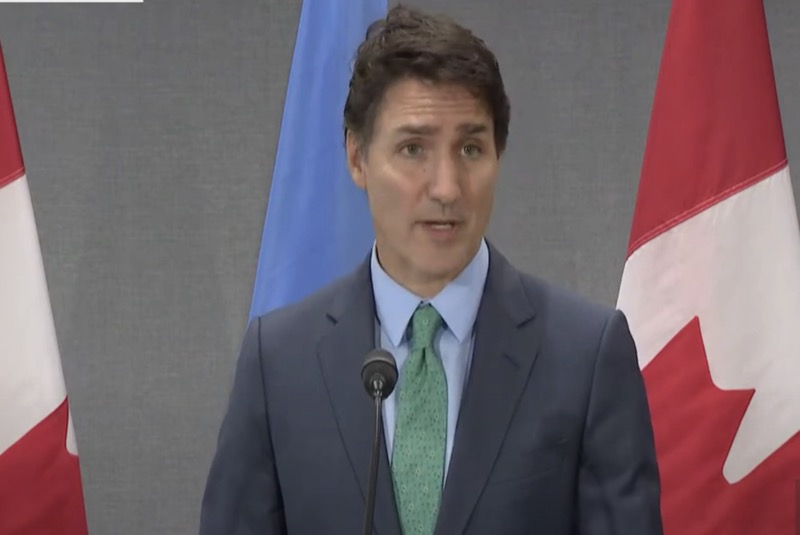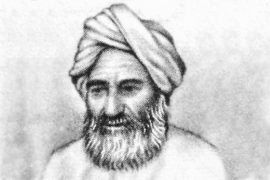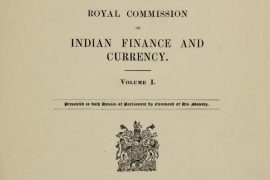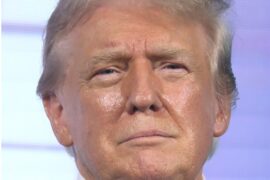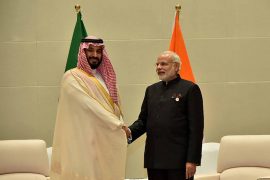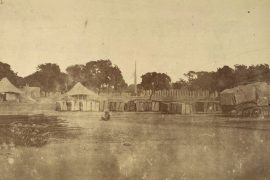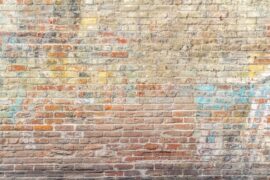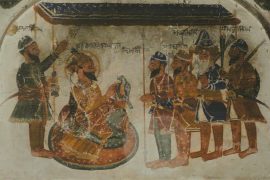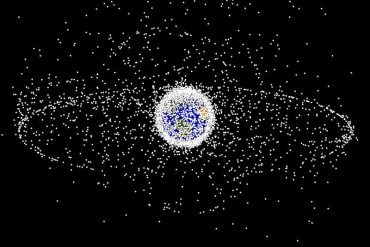I went to Ottawa as deputy high commissioner in 1982. The high commissioner left, and I was acting high commissioner in 1983-85, during which time the Blue Star Operation (June 1984) and the assassination of Prime Minister Indira Gandhi (October 1984) occurred. Some Sikhs in Toronto distributed sweets after the assassination.
Before the assassination, I was attacked by the Khalistanis in Winnipeg, where I went to call on the premier of the province of Manitoba. Thanks to the RCMP (Royal Canadian Mounted Police) accompanying me, I was not seriously injured. I got eggs on my head, and somebody with a long stick hit me. The RCMP could have handled it better. The Canadian high commissioner was summoned to the Ministry of External Affairs. A few days later, I got a personal letter of regret from the Canadian Prime Minister. I replied, thanking him. The matter ended there.
Let us look at the chronology. During the G20 summit in Delhi (9 and 10 September 2023), Prime Minister Trudeau was not given a formal bilateral meeting with his host. However, they did speak. Trudeau brought up the matter of the likely involvement of an Indian official in the killing of Hardeep Singh Nijjar, a wanted person by India, and presumably asked for India’s cooperation in investigating the matter.
Modi categorically rejected any suggestion that India was in any way involved. A week before, Canada had asked for a ‘pause’ in the talks to finalise a trade and investment treaty. That was perhaps the first signal from Canada. The Canadian intelligence chief, too, was in India and met his counterparts at the time of the G20. The Canadian left for London from India, presumably to brief the counterpart there.
There is one important incoherence in Canada’s stance. On 18 September 2023, Trudeau at the House of Commons referred to ‘credible allegations’ about the involvement of an agent of the Government of India. However credible an allegation is, the investigation must be completed before anyone is charged. In fact, the word “allegation’ is rather bizarre in the context.
Hours later, the Canadian Foreign minister announced the expulsion of the head of India’s intelligence team in the High Commission holding the rank of Minister. She referred to the ‘allegations’ and added, ‘if proven true, this would be a violation of our sovereignty’. The words, if proven true, speak volumes about Canada’s incoherence in presenting its case.
However, it seems that Canada has more or less convinced the rest of the famous Five Eyes (the intelligence agencies of the U.S., U.K., Australia, and New Zealand) that it has a case. We may guess that the evidence Canada has is electronic as the two men who fired the shots and killed Nijjar near the Guru Nanak Gurdwara in Surrey, of which he was the president, are still uncaught. The third who drove the getaway vehicle is also missing.
The U.K. has stated that this matter won’t hinder the ongoing trade and investment talks. Australia has publicly stated that it had taken up the matter with Indian officials, implying that Canada has a case worth looking into. Washington initially came out with a statement that it was ‘deeply concerned’ and that Canada should carry on with the investigation and bring the perpetrators to justice.
That was put out on 19 September. After it came under criticism, the Biden Administration came out the next day urging India to ‘cooperate’ with Canada in the matter. Incidentally, though Trudeau said he was going to talk to French President Macron, we have yet to hear from Paris.
In short, though Trudeau might not have got as much support from the Five Eyes, the situation is dynamic. After Washington advised India to ‘cooperate’, India has now said that Canada has not shared evidence.
To my mind, Modi could have told Trudeau: We categorically reject the suggestion that we had anything to do with the matter. If you have evidence, do share it.” In such a case, after examining the evidence produced by Canada, India could have, with greater force, asserted its innocence in the matter.
Is Trudeau wise in asking for India’s ‘cooperation’ in investigating the matter? Perhaps not. If he suspects India’s hand, how can he be sure that the evidence shared with India will not be used by the latter to ‘protect’ the perpetrators?
Another important point is that after getting evidence of likely Indian involvement, Canada could have discreetly asked India to transfer the diplomat and continued with the investigation. Obviously, Trudeau, under pressure from the New Democratic Party (NDP), whose support is necessary for him to remain in office, decided to come out formally against India. The Sikhs are a political force to reckon with in Canada. He has acted in haste and might have to repent at leisure.
India, too, has not acted right. It is legitimate for India to demand security for its diplomatic missions other establishments, and for the Indian citizens there. It is incorrect to demand that the propaganda for Khalistan, including holding referenda, should not be permitted and that action should be taken against such Canadians.
We all know that Canada had in 1995 held a second referendum on Quebec’s separation. India should not conflate the Khalistan propaganda matter with the obligation of the host government under the Vienna Convention. The private referenda in Canada have no impact on Punjab, where there is no support for Khalistan. The private referenda get media attention mainly because of India’s drawing attention to them.
If India gets obsessed with the propaganda carried out by the Khalistanis in Canada and elsewhere, they will do more of it to spoil India’s relations with Canada and other countries. India should not fall into the trap set by them.
India needs to review its policy about posting RAW officers holding as high a rank as Minister looking after economic, cultural, and community matters. In the present case, the expelled individual is an IPS officer. One wonders whether any corporate executive will go to an intelligence officer to discuss economic matters. During my time, the highest post held by RAW was counsellor, and they dealt only with consular matters, apart from their intelligence work.
Even in the 1980s, the Khalistanis had worked hard to create a divide between the Sikhs and the Hindus. I remember that a young Indian lady was found murdered in a park in Montreal the day before Independence Day in 1983. The Kanishka airplane tragedy occurred in June 1985, killing 329 aboard. The Khalistanis placed a bomb on the plane. It was an attack on India. I was shocked to read that an Indo-Canadian leader now claims it was an attack on Hindus. The tension between extremists among Hindus and Sikhs, at times leading to violent clashes should not be encouraged by a responsible government.
There is an absurd belief among some in India that by getting tough, Canada can be compelled to surrender and that Trudeau might be unseated. It is wrong to treat this matter as a diplomatic duel between Modi and Trudeau.
India has suspended the issue of visas for ‘security’ reasons. Even E visas have been stopped. What is the security issue with an E visa? This might turn out to be an instance of self-goal. In 2022, there were 80000 tourist arrivals from Canada. All Indians holding Canadian Passports will be inconvenienced, not to speak of the loss of revenue for the hospitality sector in India.
The latest is that India has demanded that Canada should reduce the number of diplomats posted in India. The argument advanced is that there is a convention that there should be a rough parity in the numbers. The argument does not hold water and the 1961 Vienna Convention does not require parity.
The Canadian Pension Fund has invested in the Indian stock market $55 billion, and the two-way trade in goods and services amounts to more than $16 billion. It is not suggested that Canada will start withdrawing from the Indian market tomorrow or the day after.
The moot point is that the current level of economic engagement is far below the potential. As mentioned earlier, Canada has ‘paused’ the talks on trade and investment. Both countries will benefit from such a treaty. Will the talks resume before the present tension is removed? Unlikely.
We do not know now who was behind the killing of Najjar. However, if anybody in Delhi imagines that India can carry out such killings as Israel, the U.S., and Russia do and get away with it, that is a big mistake.
In conclusion, it is in the interest of both countries to de-escalate; for that, the two governments should stop talking at each other through the media.
How about appointing Special Representatives without telling the media? Let the two representatives meet in a neutral venue sans media glare and work out a formula ad-referendum for their respective governments. Should Biden suggest this to Ottawa and Delhi? He could, provided he does not boast about it to the media.
Copyright©Madras Courier, All Rights Reserved. You may share using our article tools. Please don't cut articles from madrascourier.com and redistribute by email, post to the web, mobile phone or social media.Please send in your feed back and comments to [email protected]

